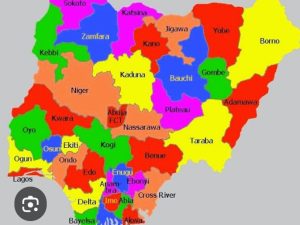

By Dada Ahmed.

(C) Pinterest.
For any administration in Nigeria, true success is measured not just in policies announced, but in how effectively it tackles the country’s staggering poverty rate.
With over 133 million Nigerians classified as multidimensional poor, experts say only bold reforms, transparency, and improved inclusive policies can turn safety nets into real engines of poverty reduction.
Poverty remains one of Nigeria’s greatest socio-economic challenges, despite its abundant natural resources and large population.
According to the National Bureau of Statistics (NBS), more than 133 million Nigerians, about 63 percent of the population, are classified as multidimensional poor. They lack access to basic needs such as food, shelter, health, education, and clean water.
This staggering figure underscores the urgent need for effective social safety nets that can cushion the impact of poverty and promote inclusive growth.
The persistence of poverty in Nigeria stems from structural inequalities, unemployment, corruption, and inadequate infrastructure among other factors.
Oil wealth has dominated the Nigerian economy for decades, but the ordinary citizen say they have seen little improvement in living standards. Inflation, joblessness, and weak social services worsen the crisis.
Economic analysts argue that social safety nets offer a viable pathway to reduce poverty and protect vulnerable households from shocks.
Social safety nets include cash transfers, food subsidies, free education, health insurance, pensions, and public works programmes. For Nigeria, these are not luxuries, they are necessities.
Over the years, government has rolled out initiatives such as Conditional Cash Transfer (CCT), N-Power, TraderMoni, and school feeding programmes.
While commendable, many discerning minds urge improved funding monitoring and continuity of these schemes
across administrations.
Experts insist that accurate data and credible targeting are critical, emphasising that reliable and updated social register are essential to ensure that benefits reach genuine poor households.
They caution against political manipulation of the social register and emphasize transparency to prevent hijack by middlemen or party loyalists.
Economic analysts who note that funding remains a major challenge in effective implementation of social safety net regret that while Nigeria spends heavily on recurrent expenditure and debt servicing, this development has left limited fiscal space for social investment.
To sustain safety nets, government must cut waste, block leakages, expand the tax base fairly, and prioritize social spending, they urge.
Partnerships with development agencies and private sector players can complement government resources and improve programme outcomes.
Beyond funding, accountability is critical. Strong monitoring systems must be in place to prevent diversion of funds meant for the poor.
Digital platforms,mobile transfers, biometric verification, and electronic monitoring, can reduce corruption, eliminate ghost beneficiaries, and deliver support directly.
Food insecurity, one of the clearest signs of poverty, demands urgent attention. Rising food prices have pushed millions into hunger.
Supporting small holder farmers with credit, storage facilities, and modern techniques will strengthen food supply, reduce poverty, and stabilize prices.
Education remains one of the most powerful tools against poverty. Free basic education, scholarships, and school feeding can break intergenerational poverty.
Healthcare is equally vital. Expanding health insurance and subsidizing maternal and child services will protect families from catastrophic expenses.
Employment is the most sustainable exit from poverty. Social safety nets must therefore be linked with job creation, vocational training, and entrepreneurship support.
Pension reform is another critical dimension. Timely and transparent payments will guarantee dignity for retirees and reduce financial stress on families.
Poverty manifests differently across regions, with the North-East and North-West worst affected. Decentralizing interventions will make them more effective at grassroots level.
Citizens and civil society must be involved in planning and monitoring social safety nets. Their participation enhances transparency, builds trust, and ensures programmes are people-driven.
There is no doubt that reducing poverty requires bold reforms, transparency, and sustained political will.
It must be stressed that social safety nets are not acts of charity but investments in Nigeria’s future stability and prosperity, therefore, concerted efforts must be put in place to ensure that its impact is felt by all and sundry,most especially the down trodden in the society and reduce crime and criminality to tolerable degree.
Ahmed is the publisher of The Reporters.


